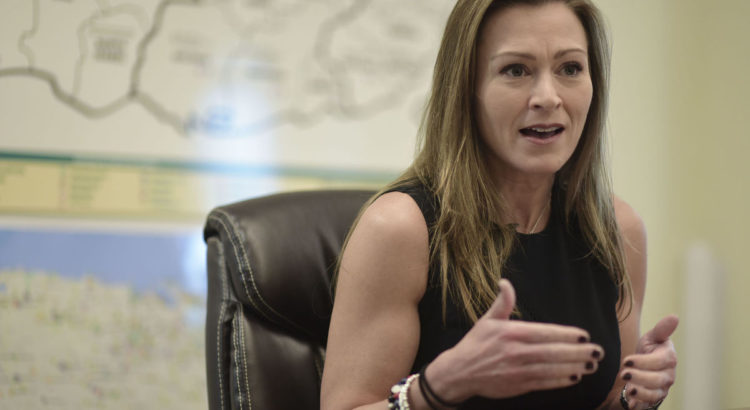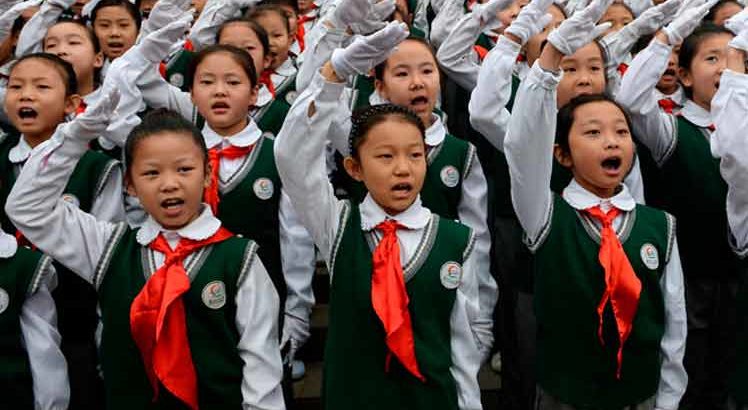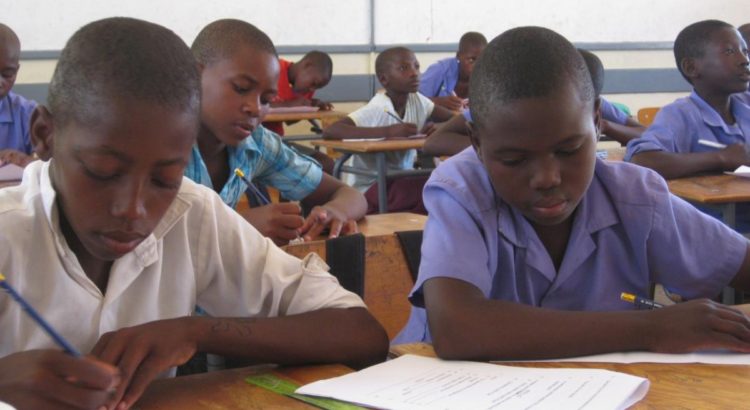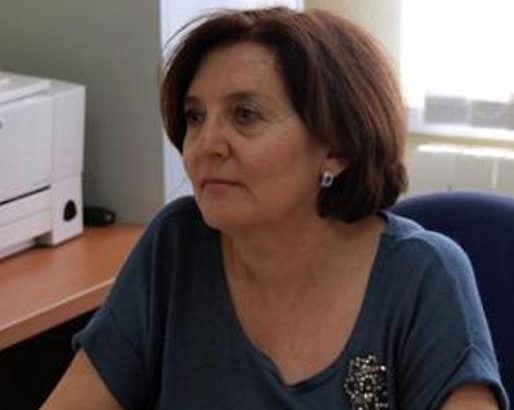África/Sudáfrica/Noviembre de 2016/Fuente: All Africa
RESUMEN: El Departamento de Educación Básica rechaza alegatos ridículos de la Alianza Democrática relacionados con NEEDU.El Ministro de Educación Básica de la Alianza Democrática (DA), Sr. Gavin Davis, ha formulado las absurdas e infundadas afirmaciones de que la Ministra de Educación Básica, la Sra. Angie Motshekga, está intentando influir de manera inapropiada en la labor de la Unidad de Evaluación y Desarrollo de la Educación Nacional NEEDU) y restringir su independencia. Las acusaciones provienen de un correo electrónico interno filtrado por el CEO interino del NEEDU, el Dr. Sibusiso Sithole al equipo de NEEDU. El correo electrónico fue visto en completo aislamiento de todos los demás acontecimientos que habían tenido lugar en el proceso de NEEDU la realización de su negocio. El Director Ejecutivo de NEEDU, personalmente abordó las preocupaciones planteadas y aclaró las opiniones mal informadas que el Sr. Davies llegó a saltar a conclusiones sobre un tema que él sabe muy poco sobre.
Department of Basic Education rejects ridiculous Democratic Alliance allegations relating to NEEDU
The Democratic Alliance (DA) shadow minister of Basic Education, Mr. Gavin Davis, has made the absurd and unfounded claims that the Minister of Basic Education, Mrs. Angie Motshekga is attempting to inappropriately influence the work of National Education Evaluation and Development Unit (NEEDU) and curtail its independence.
The allegations stem from a leaked internal email by the Acting CEO of the NEEDU, Dr Sibusiso Sithole to the NEEDU team.
The email was viewed in complete isolation from all other developments that had taken place in the process of NEEDU conducting its business.
The NEEDU CEO, personally addressed the concerns raised and clarified the ill-informed opinions that Mr. Davies arrived at by jumping to conclusions on a topic he clearly knows very little about.
The Business Case and Business Plan for the Establishment of the Office of Standards and Compliance for Basic Education (OSCBE), is one of the NEEDU founding documents, which was developed in consultation with and guidance from the Department of Public Service and Administration (DPSA) and the National Treasury. This document provides as follows:
«The unit [NEEDU] will be required to report annually to the Minister of Basic Education.»
Similarly, in section 5 (3) the NEEDU Bill, provides that «The NEEDU is accountable to the Minister for the performance of its functions in terms of this Bill.»
In line with these provisions, on 11 July 2016, the NEEDU met with the Minister. The purpose of this meeting was two-fold. First, to brief the Minister about the work of the Unit in the first five-year cycle of systemic evaluations (2012-2016), and, second, to present the plan for the Unit in the second five-year cycle (2017-2021).
«Following our briefing, the Minister asked the NEEDU to conduct deeper investigations on the areas that continue to cause concern in the system. This is what I called ‘the Minister’s directive’ in my communication to the NEEDU team. The Minister’s request or ‘directive,’ (the term that I used in my correspondence), is in line with section 6 (1) (h) in the NEEDU Bill and section 7(1) in the Regulations for the Establishment of the OSCBE, another NEEDU founding document. These clauses provide that ‘the functions of the NEEDU are to undertake any task consistent with this Bill at the request of the Minister,'» explains NEEDU CEO, Dr Sibusiso Sithole.
The NEEDU CEO admitted that as a team they have erred in judgment on several occasions over the past five years to the extent that they had to apologise to the Minister. «In my communication to the NEEDU team, when I was talking about the Minister having raised concerns about how ‘certain issues were handled in the past,’ I was referring to these errors in judgment, which are best known to the NEEDU team and the Ministry,» said Sithole.
He explained that when the Minister talked about the NEEDU being «the research/information hub of the department,» in his email, she was not talking about the NEEDU being part of the Department. She was in fact challenging NEEDU that, in conducting its own research, it must not be oblivious of research findings from the academia and the Department’s social partners. Engaging with research findings from these sources, and advising the Department about the implications of these findings on the work of the Department is part of NEEDU work as envisaged in The Business Case and Business Plan for the Establishment of the OSCBE. The following clause is quoted from this founding document to illustrate the point:
«The advisory reports of the unit [the NEEDU] will be uncompromisingly evidence-based, drawing only on the best available empirical data for its public declarations on the state of schools in South Africa.»
In line with the provisions of sections 6(1) (f) and 7(1) (a) in the NEEDU Bill and the Regulations for the Establishment of the OSCBE, respectively, in its national reports, NEEDU «makes proposals [to the education system] for remedying shortcomings in educational practice and eliminating barriers to quality education.»
In the NEEDU briefing to the Ministry, it indicated that over the past five years NEEDU had observed that some areas continued to cause concern in the system. They provided a list of these areas, and advised the Minister that they needed further in-depth investigation. From this list, NEEDU proposed that the Department should suggest which areas NEEDU could prioritise given that, due to financial constraints, NEEDU could not investigate all areas. «I was referring to these areas in my communique with the NEEDU team when I was talking about having ‘received a response to our submission from senior management about what they think we must prioritise in our work,'» said Sithole.
Having completed the first five-year evaluation cycle in July 2016, NEEDU needed to brief the Minister about its plan for the second five-year cycle (2017-2021). This is line with The Business Case and Business Plan for the Establishment of the OSCBE, which reads:
«Two factors must be present in the structure of OSCBE: independence from the DBE and the requirements to report to the Minister of Basic Education on the activities and outcomes of its work. These two factors are not in contention with each other, as the need for independence is related more to location, internal processes and a perceived separateness from the DBE whereas the need to report to the Minister is quite clear in terms of hierarchical accountability.»
Anticipating that, due to the Minister’s busy schedule, the meeting to brief her about the plan for the second five-year cycle would not take place as planned, the NEEDU had tentatively planned to do follow-up visits in schools that were evaluated in 2013 to establish how they were implementing NEEDU recommendations. «After briefing the Minister as NEEDU we felt it best to proceed with the commencement of the second five-year cycle plan. The reference to ‘suspending all school and district visits in mid-September to start planning for new work’ in my communication to the NEEDU team was about commencing with the second five-year cycle plan,» said Sithole.
The «close» relationship that the Minister was talking about is envisaged in all NEEDU founding documents. For example, The Business Case and Business Plan for the Establishment of the OSCBE, provides as follow:
«While OSCBE may have its own Advisory Council in terms of governance, it must be clearly established at the outset that the ultimate responsibility for ensuring that the unit achieves its objectives is with the Minister of Basic Education. It is essential that the Advisory Council and the CEO ensure that this relationship is nurtured.»
«Establishing OSCBE as a public entity outside government would not be ideal, since the kind of governing board required by a public entity outside of government will inhibit the direct relationship between the Head [of NEEDU], the NEEDU and the Minister required for the optimal functioning of OSCBE.»
Pursuant to the working relationship between the NEEDU and the Ministry of Basic Education envisaged in the NEEDU founding documents (quoted above), the Ministry cogently encouraged a relationship that would see the Department integrating the NEEDU findings and proposals in its work and using these findings to inform its planning. This is exactly the reason why NEEDU was established.
The Planning and Delivery Oversight Unit (PDOU), a branch within the Department of Basic Education, is tasked with the responsibility of monitoring and identifying gaps regarding how the system is working towards school improvement. To keep the NEEDU at «arms-length» from the Department, as envisaged in the NEEDU founding documents, it was prudent that one entry point through which NEEDU would engage with the Department should be identified. The PDOU was identified as that entry point. Thus, the two units (the NEEDU and the PDOU in the Department) would work collaboratively with NEEDU proposing approaches and strategies necessary for systemic change and PDOU, working with and through the provinces, addressing NEEDU findings. This is to ensure that NEEDU recommendations lead to notable impact in the system.
«It was never the Minister’s intention that NEEDU will be absorbed by the PDOU. It is for this reason that in my communique with NEEDU officials I said «NEEDU will work with [not under] the PDOU,» clarified Sithole.
The assertion by Mr. Davies that the Minister of Basic Education shelved the NEEDU Bill gazetted on 23 December 2011 in a bid to curb the independence of NEEDU is equally absurd.
Firstly the Minister did not shelve the NEEDU Bill. In 2012 the NEEDU Bill was gazetted for public comment. Comments from the public were received and changes were incorporated in the final draft.
In 2013, subsequent consultations with the National Treasury and the DPSA revealed that the then Minister of Public Service and Administration was of the view that institutions like NEEDU be established, not as statutory bodies, but as independent government components, under the generic title of Office of Standards and Compliance. It is within this understanding that the DPSA advised the NEEDU to abandon the Bill route in favour of establishing NEEDU as a «government component» called OSCBE.
The NEEDU Bill was then packaged into «Regulations for the establishment of OSCBE» verbatim, without any changes. In other words, the Regulations for the establishment of OSCBE are not different from the provisions of the final draft of the NEEDU Bill. In fact, the Regulations are nothing but euphemism for the already gazetted NEEDU Bill.
Following the decision by the DPSA to pursue a new legal pathway, plans are currently in progress to set NEEDU up as a government component, known as the Office of Standards and Compliance for Basic Education (OSCBE). The Minister would consult with the CEM on the Regulations, formulated in discussion with DPSA, DBE legal advisors and the State Law Advisor. Second, OSCBE would then be established by means of promulgation of the Regulations.
The Minister has in no way delayed the NEEDU report, delays in the report has absolutely nothing to do with her.
The 2014 NEEDU draft report was submitted to the Department of Basic Education for comments in December 2015. In terms of the NEEDU protocol, each site visited (including schools, districts, provinces and the national office) is given four to six weeks to comment on the NEEDU draft report before it is finalised. This practice, which was followed before the 2012 and 2013 NEEDU Reports were finalised, was also followed with regard to the 2014 Report.
NEEDU received inputs from the Department in February 2016. After considering these inputs carefully, there was a need for further analysis of data to provide evidence on the claims and conclusions that the report was making and to collect additional data to close the gaps that were identified in the report.
There are two main factors that caused the delay in the finalisation of the 2014 report according to NEEDU. First, owing to limited funds, further analysis of data had to be done in-house by two NEEDU staff members. While NEEDU has 25 professional staff members, 23 are field-workers (and are based in the provinces), and only two (at head office) are responsible for preparing the national reports, including the analysis of data and the collation of provincial reports into a national report. Secondly, the collection of additional data took longer than anticipated because the NEEDU team had to split into two groups. In the first semester of 2016, NEEDU had already planned to evaluate the quality of curriculum delivery in special schools. One team was therefore responsible for collecting data in special schools while another team was collecting additional data required to finalise the 2014 report. Data collection was completed in July 2016.
Informed by further analysis of data and additional data that was collected, the 2014 draft report is at the final stages of amendment and will be re-submitted to the Department by 30 November 2016 for final input. Thereafter, it will be submitted to the Minister for her consideration.
The Minister has never attempted to «capture» NEEDU, she sees NEEDU as an important and valuable entity whose research must be used by the Department to inform interventions in order to remedy any negative findings uncovered by the research conducted by the unit.
The following facts about the Minister’s commitment to an independent NEEDU speak for themselves:
In the initial stages when the Bill route was followed, the Minister approved the draft Bill. She then presented it at CEM and it was approved.
Following the decision by the DPSA to pursue a new legal pathway to establish NEEDU as an independent government components, and not as statutory body, the Minister:
In April 2014, wrote to the Ministers of Public Service and Administration and Finance requesting their written consent on the corporate form and funding requirements of the proposed government component so that OSCBE could be legally established in keeping with the requirements of the Public Service Act, 1994 (Proclamation No. 103 of 1994 as amended by Act 20 of 2007).
In April 2014, also approved that the relevant Government Notice containing Regulations for the establishment, governance and functions of the OSCBE be published once consent has been obtained from the Ministers of Finance and the Public Service and Administration.
Ministers Sisulu and Gordhan had not responded to the Minister’s request by the time they were deployed to other portfolios after the 2014 General Elections. With the change of political leadership in the Departments of Public Service and Administration and Finance, in July 2014, the Minister again wrote to the new Ministers of Public Service and Administration and Finance, requesting their support in the establishment of an independent NEEDU.
Following the Minister’s correspondence with the Ministers of Finance and the Public Service and Administration, in 2015, the Minister approved the Regulations for the establishment of OSCBE after they these Regulations were endorsed by the Chief State Law Advisor.
Since its inception in 2011 to date, the NEEDU has enjoyed full and unwavering support from the Ministry. Over the years, the Minister has given the NEEDU the space and leeway to do its work without any interference.
The Minister is currently considering the most suitable candidates to lead NEEDU as a permanent CEO and will appoint the best candidate in due course.
NEEDU continues to have an important role and function to facilitate school improvement through systemic evaluation. NEEDU would do this through the establishment of a countrywide credible, sustainable and holistic performance review system which focuses systemically on the state of teaching and learning in classrooms, and on the monitoring, administration and support functions at school, provincial and national levels.
Fuente: http://allafrica.com/stories/201611101047.html










 Users Today : 37
Users Today : 37 Total Users : 35460246
Total Users : 35460246 Views Today : 45
Views Today : 45 Total views : 3418940
Total views : 3418940